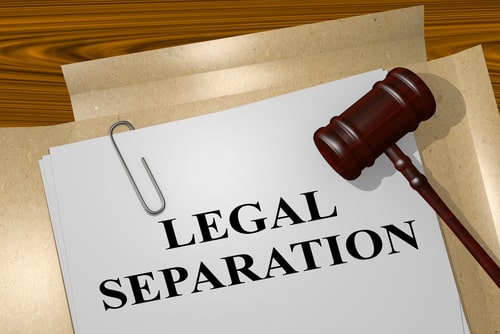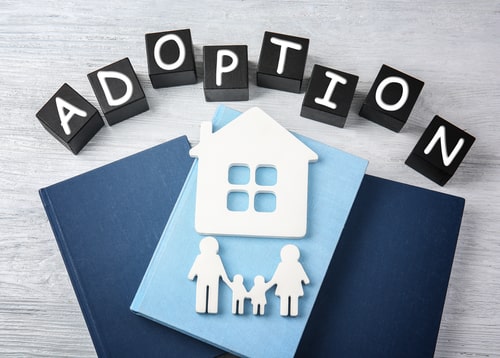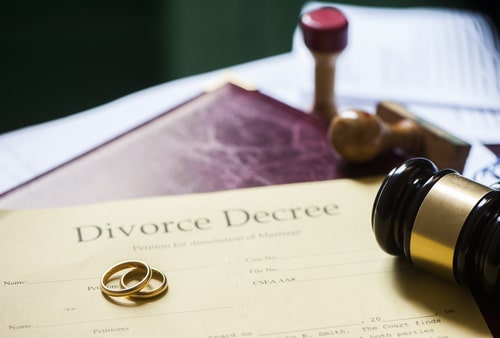Recent Blog Posts
Is Illinois Legal Separation the Same as Divorce?
 Legal separations can be confusing because many people are not as familiar with legal separations as they are with divorce. In Illinois, legal separation is a separate legal process from divorce, and it is typically used by couples who wish to be separated but are not ready to fully end their marriage with a divorce.
Legal separations can be confusing because many people are not as familiar with legal separations as they are with divorce. In Illinois, legal separation is a separate legal process from divorce, and it is typically used by couples who wish to be separated but are not ready to fully end their marriage with a divorce.
An experienced Illinois legal separation lawyer can help you determine if this is the right choice for you.
What Is Legal Separation?
Legal separation is an agreement between two spouses that is court-approved and allows the couple to live separately both physically and financially while still legally being married. Many couples who choose a legal separation over divorce select this option to give themselves space from their spouse and to allow for personal growth and counseling.
Do I Need a Lawyer for an Illinois Adoption?
 Adoption is a rewarding process that helps to bring families together, though navigating the legal complexities and requirements of adoption in Illinois can be overwhelming. You will generally need a lawyer to help you with an Illinois adoption, especially in more complex cases where you are adopting a child and biological parent rights need to be terminated, or in the case of agency adoptions.
Adoption is a rewarding process that helps to bring families together, though navigating the legal complexities and requirements of adoption in Illinois can be overwhelming. You will generally need a lawyer to help you with an Illinois adoption, especially in more complex cases where you are adopting a child and biological parent rights need to be terminated, or in the case of agency adoptions.
A skilled Illinois adoption attorney can help guide you through all of the steps necessary to complete your adoption and provide knowledgeable counsel during this process.
Types of Adoption in Illinois
There are a few different types of adoption in Illinois that you may be pursuing. It is important to be familiar with these types as you start the adoption process and seek out a lawyer to help you with finalizing your adoption.
How Do I Make a Good Impression in Divorce Court?
 It is no surprise that most divorces are accompanied by high emotions. Contentious divorces, complete with arguments and name-calling, are difficult to navigate, but the last thing you want to do is take this behavior with you into divorce court as you present your case for divorce before a judge.
It is no surprise that most divorces are accompanied by high emotions. Contentious divorces, complete with arguments and name-calling, are difficult to navigate, but the last thing you want to do is take this behavior with you into divorce court as you present your case for divorce before a judge.
Working with a dedicated mediator and attempting to settle out of court is recommended, though if you do need to attend divorce court, it is important to be on your best behavior. Make sure you also have the counsel of an experienced Illinois divorce attorney to guide you through this process.
How to Act During Divorce Court
As you attend divorce court, it is important to know how to behave and make a good impression. This advice can help strengthen your case and ensure you do not get on the court’s bad side.
When Should I Consider a Divorce?
 Figuring out if it is time to end your marriage is a challenging process, though sometimes a divorce is the best step for all parties involved. It can be hard to file for a divorce, as this may feel like giving up to some, but pursuing a divorce from your spouse might be just the thing you need to move on to a more peaceful time in your life.
Figuring out if it is time to end your marriage is a challenging process, though sometimes a divorce is the best step for all parties involved. It can be hard to file for a divorce, as this may feel like giving up to some, but pursuing a divorce from your spouse might be just the thing you need to move on to a more peaceful time in your life.
A knowledgeable Illinois divorce lawyer is essential to understanding your legal options and navigating your way through the divorce process.
Considering Divorce in Illinois
As you consider divorce in Illinois, it may be obvious that your marriage is not working, such as with cases of abandonment by one spouse, domestic violence, or substance abuse issues that affect the marriage. However, there may also be more subtle signs that indicate you and your partner would be better separated.
Can Domestic Violence Affect My Divorce Proceedings?
 Divorce proceedings are stressful for many, and this process becomes more challenging when accusations of domestic violence occur from one party or when a spouse needs to seek a protective order during a divorce. Contentious divorces can be especially difficult to navigate, and domestic violence can impact many parts of your Illinois divorce.
Divorce proceedings are stressful for many, and this process becomes more challenging when accusations of domestic violence occur from one party or when a spouse needs to seek a protective order during a divorce. Contentious divorces can be especially difficult to navigate, and domestic violence can impact many parts of your Illinois divorce.
You should work with a skilled Illinois divorce lawyer to understand your legal options in situations where domestic violence may be a factor.
Domestic Violence and Divorce
Domestic violence is any type of behavior that is threatening, abusive, or physically harmful to those who share the same household, such as spouses or parents and children. These issues may become heightened during a divorce, as divorces result in the need for spouses to come to an agreement about the end of their marriage and related topics, such as property division and child custody.
Will My Prenup Be Honored in an Illinois Divorce?
 Prenuptial agreements are important documents that many people choose to enter into before marriage. A prenuptial agreement lays out important details about each spouse’s assets, what to do in the case of a divorce, and other essential agreements. For the most part, prenuptial agreements are consulted by courts and honored in the case of a divorce, though these agreements may sometimes be challenged or found unenforceable.
Prenuptial agreements are important documents that many people choose to enter into before marriage. A prenuptial agreement lays out important details about each spouse’s assets, what to do in the case of a divorce, and other essential agreements. For the most part, prenuptial agreements are consulted by courts and honored in the case of a divorce, though these agreements may sometimes be challenged or found unenforceable.
A skilled Illinois prenuptial agreement attorney can help you create a prenuptial agreement that is mutually agreeable for you and your spouse and likely to hold up in court as necessary.
Unenforceable Items in an Illinois Prenuptial Agreement
The Illinois Uniform Premarital Agreement Act lays out a set of rules for prenuptial agreements and the type of agreements that can be listed in this document. Both spouses must sign the prenuptial agreement to show they agree with the items listed within the document.
Will My Illinois Divorce Go to Trial?
 A common misconception about divorce in Illinois is that every divorce case will end up in a trial. In reality, most divorce cases can be settled without a trial, and this is typically the most desirable outcome, as divorce trials can be expensive and drawn out. An experienced Illinois divorce attorney can help you navigate your case and pursue a favorable outcome without a trial.
A common misconception about divorce in Illinois is that every divorce case will end up in a trial. In reality, most divorce cases can be settled without a trial, and this is typically the most desirable outcome, as divorce trials can be expensive and drawn out. An experienced Illinois divorce attorney can help you navigate your case and pursue a favorable outcome without a trial.
Understanding the Illinois Divorce Process
In Illinois, the divorce process is governed by the Illinois Marriage and Dissolution of Marriage Act. This law outlines how spouses should act, the details of filing for divorce, and other factors about dividing properties or assets during a divorce and deciding on parenting and child custody plans.
Must I Pay My Ex’s Debt in a Divorce in Illinois?
 During a divorce, property, and asset division is one of the most complex issues that spouses will need to figure out. Often overlooked is the presence of debt between a couple, and this debt will also need to be divided and allocated as spouses separate. In many cases, you may wonder if you will be left on the hook for your ex’s debt after divorce, though whether or not this occurs depends on the type of debt your former spouse owes and the additional division of assets.
During a divorce, property, and asset division is one of the most complex issues that spouses will need to figure out. Often overlooked is the presence of debt between a couple, and this debt will also need to be divided and allocated as spouses separate. In many cases, you may wonder if you will be left on the hook for your ex’s debt after divorce, though whether or not this occurs depends on the type of debt your former spouse owes and the additional division of assets.
An experienced Illinois divorce lawyer can help you understand how your debt might be divided and advocate for the most beneficial outcome during your divorce.
Understanding Marital and Non-Marital Debt
As you start the divorce process and divide your assets, it is important to know the difference between marital and non-marital debt. In general, you may potentially be required to pay some of the debt that your ex acquired during your marriage, which counts as marital debt. In contrast, non-marital debt, or debt that was acquired by your ex before or after your marriage, will usually not be factored into your divorce.
Can I Modify a Child Support Order in Illinois?
 Child support and child custody are often the most contentious issues during an Illinois divorce, and once the dust on your divorce has settled, you may be wondering if it is possible to modify your Illinois child support order at any point. When there is a significant change in circumstances for the parent paying child support, modifications may be possible, though you will likely need the assistance of a knowledgeable Illinois child support attorney to navigate this process.
Child support and child custody are often the most contentious issues during an Illinois divorce, and once the dust on your divorce has settled, you may be wondering if it is possible to modify your Illinois child support order at any point. When there is a significant change in circumstances for the parent paying child support, modifications may be possible, though you will likely need the assistance of a knowledgeable Illinois child support attorney to navigate this process.
Common Modification Circumstances in Illinois
Under the Illinois Marriage and Dissolution of Marriage Act, modifications are allowed in child support orders when there is a ‘substantial change of circumstances.’ However, the law does not define exactly what counts as a significant change in circumstances. Examples of situations that may lead to the need for child support modification include:
Can I Adopt a Child Related to Me in Illinois?
 Adoption can be a lengthy process, even in the case of something more straightforward, like a related child adoption. If you have a loving relationship with the child you wish to adopt, you may be eligible to file a Petition for Adoption and legally add him or her to your family. An experienced Illinois adoption lawyer can help you further navigate and complete this process.
Adoption can be a lengthy process, even in the case of something more straightforward, like a related child adoption. If you have a loving relationship with the child you wish to adopt, you may be eligible to file a Petition for Adoption and legally add him or her to your family. An experienced Illinois adoption lawyer can help you further navigate and complete this process.
Who Is Eligible to Adopt a Related Child in Illinois?
Under the Illinois Adoption Act, a related child is a child that is related to either, or both, potential adoptive parents through a relationship such as blood, marriage, civil union, or adoption. Individuals who may be eligible to adopt a related child include the following:
-
A parent or step-parent

 630-584-5550
630-584-5550







 630-584-5550
630-584-5550